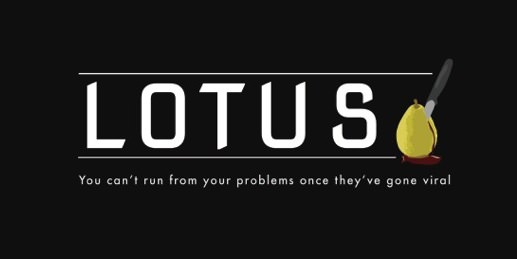This article appeared in the May 30 2014 edition of the Gazette.
MONTREAL — When I began looking at the Montreal Fringe Festival from the “girl power” perspective last week, I was mainly thinking of young playwrights like Johanna Nutter who have launched their careers through this annual performing arts festival, as well as those like Melissa Paulson who are presenting their own plays for the first time.
Nutter is presenting a sequel to her show My Pregnant Brother, titled <My Playwright Sister, created with her transgender brother, James Diamond. Paulson will be performing solo in For the Love of Pie, about an ambitious celebrity chef.
While researching, I noticed that women are everywhere at the Fringe, beginning with executive and artistic director Amy Blackmore and Suzanne Hinks, board president of MainLine Theatre, the company that produces the Fringe.
While interviewing Blackmore this week, she pointed out other key festival positions held by women.
“It’s funny, but over the years, it feels like we’ve seen women take over the Fringe more and more,” she noted.
“Not just organizationally. Although, the majority of our office staff is women this year.”
Blackmore had trouble naming them all. So I called upon the festival’s English media director, Dane Stewart, to provide me with a list, assuring him that this was just a story angle, not gender war. (Note: the Fringe general manager is also a man, Geoff Agombar.)
I was soon informed that Sophie Croteau is the Fringe communications director, Caroline Fortin, the volunteer co-ordinator, Stéphanie Morin-Robert the artist liaison, Jacky Lalonde the production manager, Sophia Wright the events co-ordinator, Holly Greco the assistant to the director, and Emily Thorne the technical director. That’s just for starters. A comprehensive list can be found on the back page of the 2014 Fringe program. On the front of the program is this year’s logo, a giant bee. While the bee mainly represents Fringe “buzz,” Blackmore suggested that it could also have “girl power” meaning: “Queen bees are the ones that do all the work.” (During the Fringe, the “hive,” or headquarters, will be in new digs at 3905 St-Laurent Blvd.)
On the artistic side, there’s clearly a better gender balance at the Fringe than among standup headliners at the Just for Laughs comedy festival. Although there are plenty of one-man shows here, too. (Jem Rolls, Keir Cutler and Jeff Gandell are all back at the Fringe this year. And the long-absent TJ Dawe returns, for one night only, on Wednesday, June 4.)
“Diversity has just kind of happened,” Blackmore said, “mainly because of the names in the hat. The Fringe lottery ensures that the diversity remains. These things aren’t just trends. They’re realities. There are a lot of strong women in theatre, strong playwrights, strong performers. At the Fringe, we see a representation of what’s really out there.”
The only quotas imposed by the Fringe are those of language and place of origin. The breakdown is 70 per cent local, split equally between anglophone and francophone, plus 15 per cent Canada-wide and 15 per cent international. Otherwise, it’s first come, first served — a game that women can play as well as men.
At the Fringe, there’s no pressure to fit into a male-defined mould. “It’s definitely the place where you get to colour outside the lines,” Blackmore said.
She brought up quirky local performers like Sarah Segal-Lazar (Talk, Mackerel), who will be back with another original musical this year, In Memoriam: The Wake of Cheddar Fandango; comedian Jess Salomon, who returns with IMO (In My Opinion); and playwright Caitlin Murphy, back with Lotus, a dark comedy about cyberspace harassment. Then there are the out-of-towners, like Ingrid Hansen of Victoria, winner of last year’s Best English Production award for Little Orange Man. She’s back with Kitt and Jane: An Interactive Survival Guide to the Near-Post-Apocalyptic Future.
Are men’s and women’s earnings equal at the Fringe? “I would say so,” Blackmore replied. “The way that you get good houses at the Fringe, you show up with a good show or you show up with good PR. Then you let the Fringe buzz take over, and hopefully it’s all going to work out.”
Nutter did all of the above. Her autobiographical My Pregnant Brother (2009) became a national and international (Edinburgh Fringe Festival) hit. It played La Licorne, in French as well as English, and recently toured Montreal’s Maisons de la culture. “Last September, finding myself on the marquee for the Soho Theatre in London was quite something,” she said. Unfortunately, the more popular it became, the more her brother developed issues about it, remarking that he should write a play titled My Playwright Sister. He posted his concerns on Facebook, and Nutter began receiving hate mail. Thus, a sequel involving two grown siblings was born. Performances of My Playwright Sister run from June 5 to 20 at the Freestanding Room.
“We both came to the conclusion that my show had a big wall in the middle of it, with my brother on one side and me on the other,” Nutter said. “Then we thought about my niece and how we’d like her to have the full story.” Nutter likes the Fringe because it’s a direct route to production. “When I have a project, I like to focus on the actual creation. The Fringe allows me to do that without a lot of planning ahead of time and meetings and trying to sell people on the idea.”
Besides performing at this year’s Fringe, she’ll be scrutinizing shows, as she’s now the curator of Centaur Theatre’s Wildside Festival.
To Paulson, the Fringe is a supportive place: “With the Fringe, you have a big community. The people who are organizing it are really helpful and they want you to succeed. As a first-time playwright, it’s a little scary to produce your own show.”
For the Love of Pie (opening June 14 at Espace 4001) was largely inspired by her addiction to Food Network shows, she said.
Of the 110 Fringe shows presented at 20 venues this year, about 40 (judging by names in the program) are created by women. Not parity, but getting there.
The Fringe-for-All for local acts, where the audience gets teasers of this year’s shows, takes place Monday, June 2 at 7 p.m. at Café Campus, 57 Prince-Arthur St. E. Free admission.
The Montreal Fringe Festival runs from Monday, June 2 to June 22. Tickets are available via montrealfringe.ca; by phone (as of Tuesday, June 3) at 514-849-FEST; at the central box office at Rachel St. and St-Laurent Blvd. (starting June 12); or at the venues one hour before showtime. Tickets cost $10 or less, plus $2 service charge. Passes for the full A-to-Z programming, which begins June 12, include the Ménage à trois (three shows for $28), Gold pass (six shows for $55), Platinum pass (10 shows for $85) and Carte blanche (unlimited for $250).
[email protected] Twitter: patstagepage

